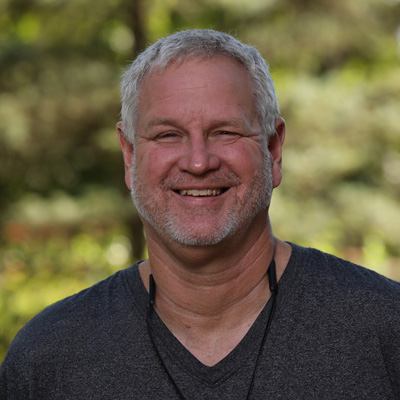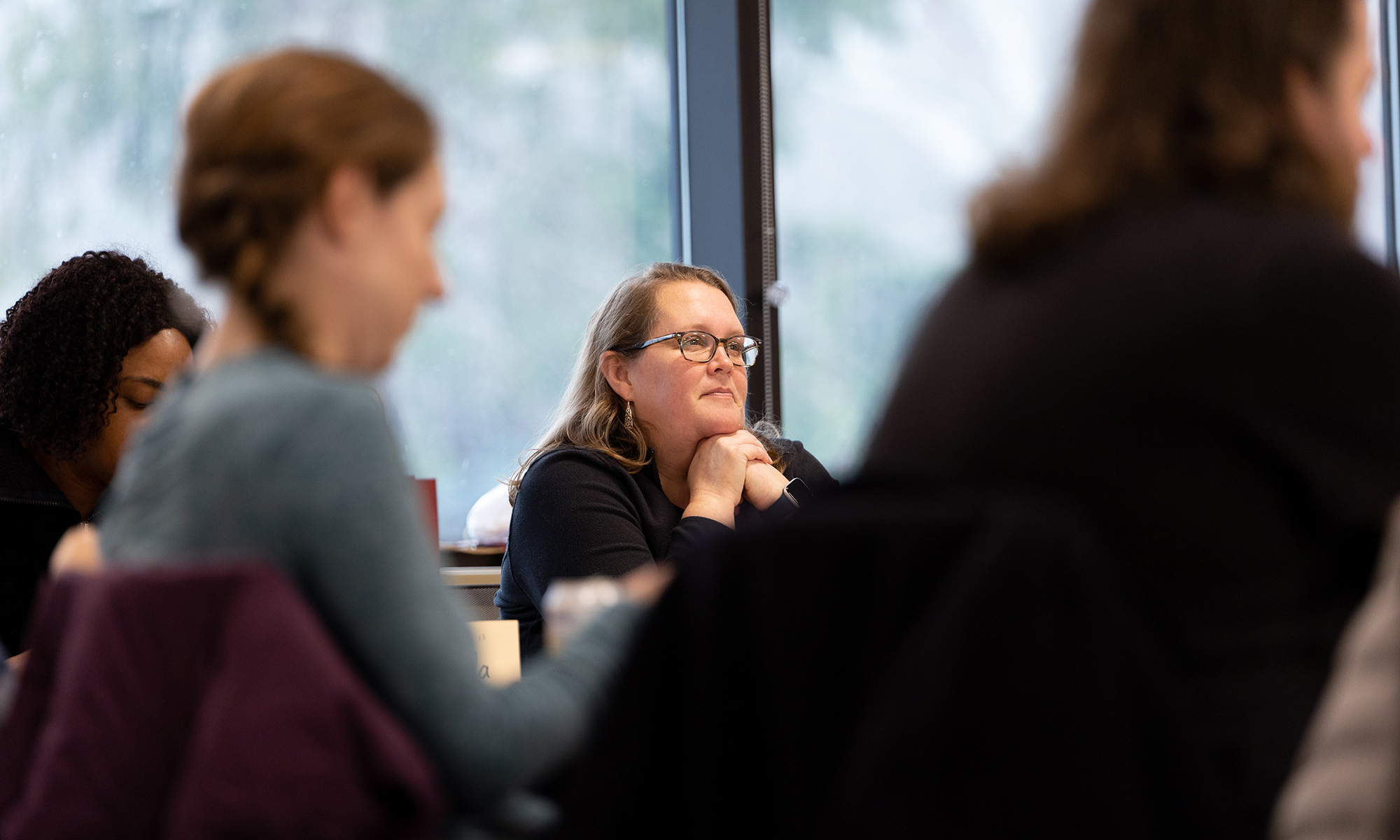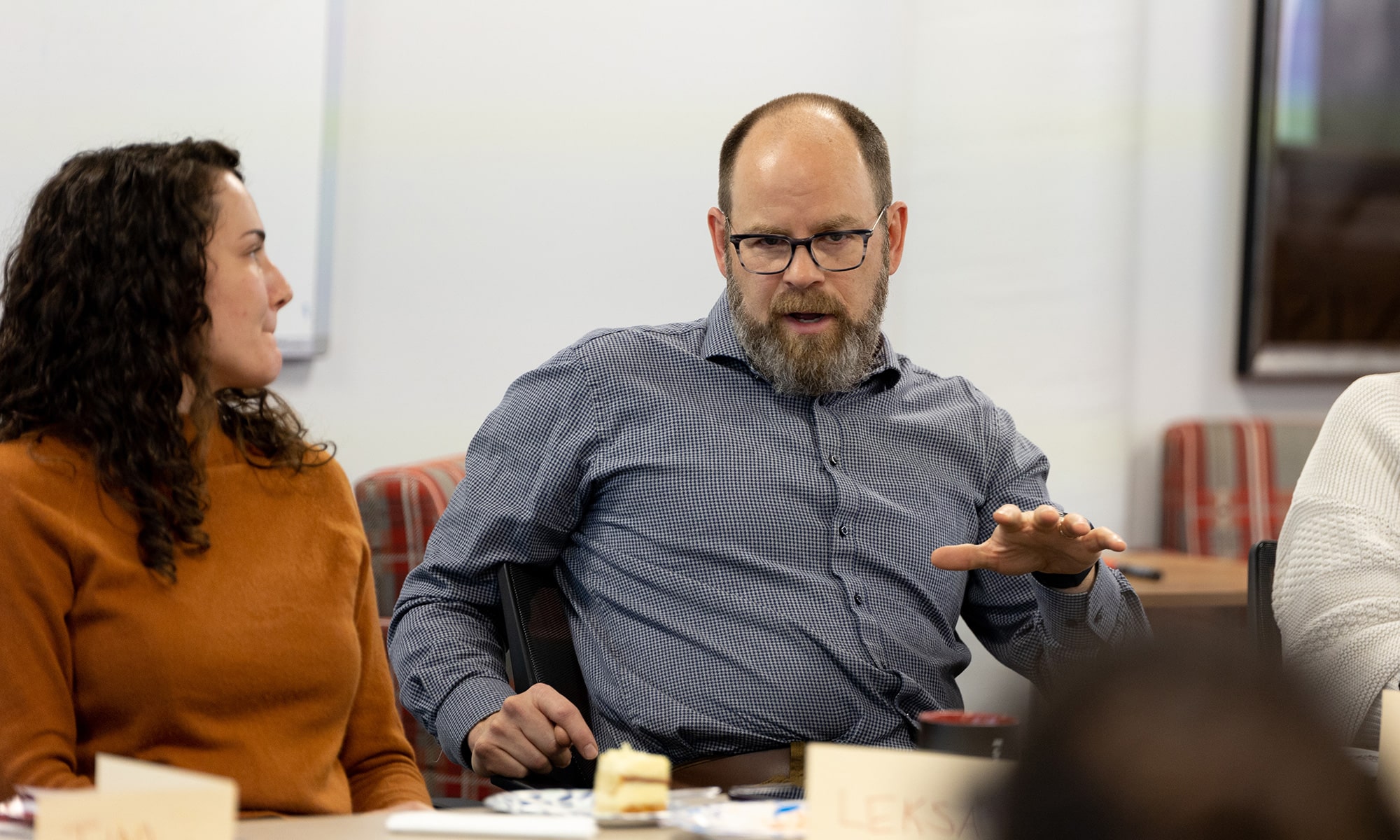The center of campus is a heart-pumping, hamstring-tugging, 10-minute uphill walk from the Mitchell Recreation and Athletics Center. But it’s one Amanda Arnold enjoys making every other Thursday during the school year.
Arnold is a second-year assistant professor in Health, Exercise, and Sports Studies at Denison. While her teaching duties keep her busy in the Mitchell Center, Arnold takes advantage of the opportunity to meet at the Doane Library to exchange ideas and share experiences with other new faculty members.
She’s an eager participant in the Denison Teaching Seminar — a bimonthly gathering of the university’s new tenure-track professors — that’s run by the Center for Learning and Teaching. The innovative program is open to professors in their first three years at Denison, and while attendance isn’t mandatory, the turnout has been steady.
“I find it extremely helpful,” Arnold said. “The focus is on teaching, but we also learn about time management and how to prepare for our third-year reviews. Beyond that, it builds a sense of community.”
In his travels, President Adam Weinberg is constantly engaging with Denison alums. He’s often asked if the faculty is as good as they remember it.
“The Denison Teaching Seminar is designed to make sure this always remains true,” Weinberg says.
‘The expert is the room’
The seminar has been around for nearly a decade in some form, but under the direction of mathematics and computer science professor Lew Ludwig and biology professor Rebecca Homan, the focus has sharpened, and the buy-in from faculty has been greater.
Each month during the school year, Ludwig and Homan introduce a topic: grading, mid-term feedback, student advising, technology in the classroom, relationship building with students, and more. Two weeks later, the group meets to discuss the featured topic and the professors are encouraged to share their thoughts.
What the seminar does not include are outside speakers. That’s intentional.
“It’s transforming a teaching culture through peer mentoring,” said Ludwig, director of the Center for Learning and Teaching. “It’s set up around a ‘community of practice,’ so there is no expert in the room. The expert is the room.”
Denison’s faculty has grown larger and more diverse, and its members are spread throughout central Ohio, with some professors choosing to live closer to Columbus. Gone are the days when many faculty lived in apartments at Stone and King halls.
Today’s professors will soon be sitting on academic committees and collaborating on interdisciplinary projects. Getting to know each other through the seminar’s free-flowing format helps engender a sense of unity.
“One of the most important things to us is that it builds community beyond a single cohort,” Homan said. “Lew likes to say that if a person participates for all three years, they build relationships with five different cohorts.”
Making the grade
The Denison Teaching Seminar, in its second year, is thriving, regular attendees say, because professors find the format welcoming and the topics stimulating.
“It’s never boring, and there’s always something useful,” said Belinda Azenui, an assistant professor in economics.
Several new professors noted how engaged Denison students are in the classroom. They want to build relationships with instructors and understand why they are earning the grades they are receiving. That’s not always the easiest conversation.
“Even though the fields we’re teaching are sometimes wildly different, a lot of the issues are similar,” said Lucy McAllister, an assistant professor in environmental studies.
Ludwig believes the program, designed to graduate professors in time for their third-year review, is “the crown jewel” of the Center for Learning and Teaching.
“A lot of alums come back in part because they had an emotional attachment with a faculty member,” he said. “We want to make sure that never changes.”



